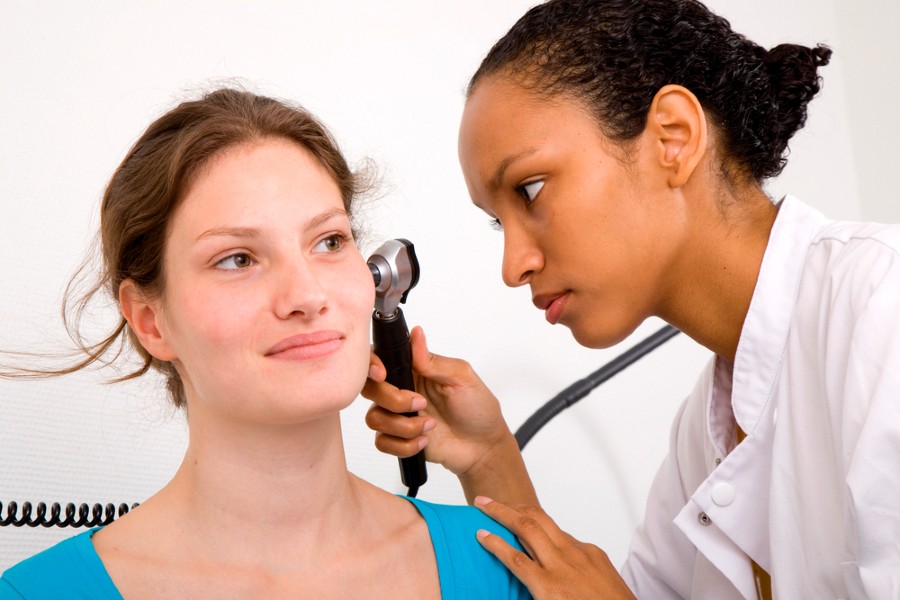
The fashion industry loves earrings as a key accessory, offering endless styles to match any look. From gold hoops to diamond studs, earrings can enhance personal style and show individuality.
But wearing earrings also comes with responsibilities that are often ignored. Poor care can lead to infections, causing discomfort and sometimes serious health issues. Knowing how earring infections happen and how to prevent them is important for both wearers and healthcare professionals.
Looking at the often-overlooked aspects of earring hygiene provides useful information. This article explains how earrings can get infected, identifying the causes, symptoms, proper hygiene practices, and safe piercing methods. It also discusses treatment options for infected earrings and highlights preventive measures to keep your earrings stylish and safe. By covering these topics, readers can better understand the importance of responsible earring care.
Causes of Earring Infections
Earring infections can come from many sources, so it’s important to know what causes them to prevent them. Bacteria are a common cause, often due to poor sterilization of earrings or touching them with dirty hands. Allergic reactions to metals like nickel can also lead to infections, causing redness, swelling, and irritation. Using unsterilized needles, improper aftercare, or incorrect piercing techniques can further increase the risk.
The piercing process creates an open wound that can get infected if not cared for properly. Recognizing these causes is a must for anyone wanting to avoid the discomfort and problems of earring infections. Simple steps, like choosing hypoallergenic materials, ensuring professional piercing services, and following proper aftercare instructions, can make a significant difference in maintaining ear health and preventing infections.
Symptoms of an Infected Earring
Identifying the symptoms of an infected earring is important for quick treatment and avoiding complications. Early signs include redness, swelling, and a warm feeling around the piercing area. Pus or other discharge clearly indicates an infection, showing the body’s response to harmful bacteria. Pain and tenderness are also common, making the situation more uncomfortable and needing immediate attention.
Noticing these symptoms early allows for fast treatment, which might involve cleaning the area with antiseptic solutions, using saline soaks, or getting professional medical help. Addressing the issue promptly can prevent it from becoming a more serious health problem, emphasizing the importance of careful earring maintenance and regular hygiene practices.
Hygienic Practices for Prevention
Keeping your earrings and piercings clean is a must to avoid infections. Clean your earrings and the piercing site every day with antibacterial solutions to keep them free from bacteria and other contaminants. Use a saline solution or a mild antiseptic to gently clean the piercing site, preventing bacteria buildup. Avoid touching your earrings with unwashed hands to reduce the risk of transferring bacteria and causing infections.
Wearing hypoallergenic earrings made from materials like surgical stainless steel or gold can help reduce the risk of allergic reactions and infections. Regularly remove your earrings to check for dirt or corrosion and clean them as needed. If you have new piercings, be sure to follow the aftercare instructions provided by your piercer.
Proper Piercing Techniques
When getting your ears pierced, choosing experienced professionals and using safe techniques are key to avoid infection. Start by researching reputable piercing studios with certified, well-trained piercers who have positive reviews. The professional should use sterilized equipment, including single-use needles, and wear gloves to keep things sterile. They will thoroughly clean the area with antiseptic solutions before piercing to prevent any bacteria from causing infection.
Aftercare is just as important. The piercer will give you detailed instructions on how to keep your new piercing clean, emphasizing the importance of regular cleaning with saline solutions and avoiding unnecessary touching. Avoiding swimming in pools or using harsh chemicals near the piercing site can also help reduce the risk of infection.
Treatment Options for Infected Earrings
Dealing with an infected earring requires knowing how to treat it properly. Start by cleaning the infected area with an antiseptic solution like hydrogen peroxide or saline rinse to kill harmful bacteria. You can also apply over-the-counter antibiotic ointments to fight the infection and reduce irritation. It’s important to keep the area dry and avoid touching the earring unnecessarily to prevent more contamination.
If symptoms don’t improve or get worse, seek medical advice. A doctor may prescribe stronger antibiotics or other treatments for severe infections. Consider temporarily removing the earring to let the area heal, but consult a professional to avoid closing the piercing too soon. Knowing these treatment options helps you take quick and effective action for a speedy recovery and safe earring wear.
Understanding the importance of earring hygiene can significantly reduce the risk of infections and ensure a pleasant wearing experience. Recognizing the causes and symptoms of earring infections allows for prompt and effective treatment, preventing minor issues from becoming serious health concerns. Adopting proper hygienic practices, such as regular cleaning and choosing hypoallergenic materials, is essential for maintaining ear health. Additionally, selecting reputable piercing professionals and following their aftercare instructions can further minimize risks. By staying informed and proactive, wearers can enjoy the aesthetic and personal expression that earrings provide while safeguarding their health.
Become a Harlem Insider!
By submitting this form, you are consenting to receive marketing emails from: Harlem World Magazine, 2521 1/2 west 42nd street, Los Angeles, CA, 90008, https://www.harlemworldmagazine.com. You can revoke your consent to receive emails at any time by using the SafeUnsubscribe® link, found at the bottom of every email. Emails are serviced by Constant Contact










